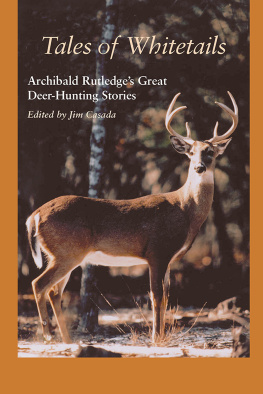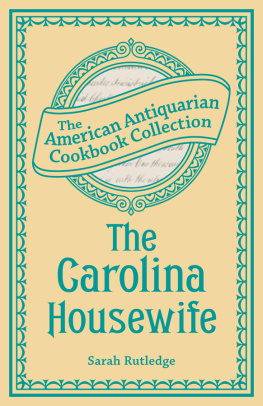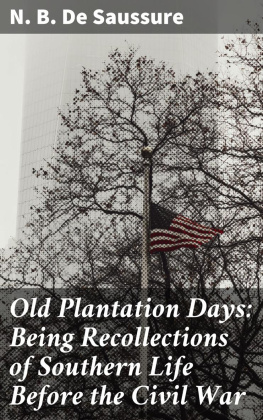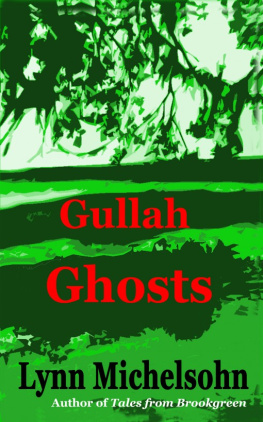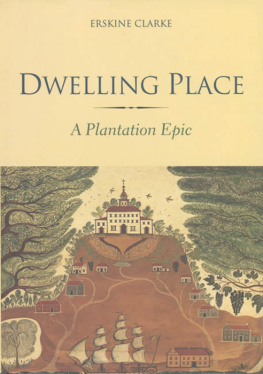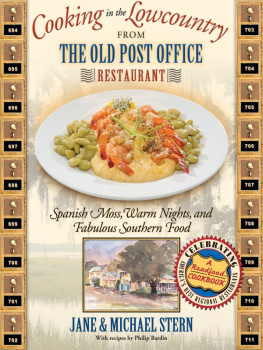Published by The History Press
Charleston, SC 29403
www.historypress.net
Copyright 2009 by Archibald Rutledge
All rights reserved
First published 1947 by the Bobbs-Merrill Company
The History Press edition 2009
e-book edition 2013
Manufactured in the United States
ISBN 978.1.62584.288.6
Library of Congress Cataloging-in-Publication Data
Rutledge, Archibald Hamilton, 1883-1973.
Gods children / Archibald Rutledge ; illustrated with photographs by Noble Bretzman. --History Press ed.
p. cm.
Originally published: Indianapolis ; New York : Bobbs-Merrill Co., 1947.
print edition ISBN 978-1-59629-642-8
1. Plantation life--South Carolina--Hampton--History. 2. Plantation life--South Carolina--Hampton--History--Pictorial works. 3. African Americans--South Carolina--Hampton--Social life and customs. 4. African Americans--South Carolina--Hampton--Biography. 5. Community life--South Carolina--Hampton--History. 6. Hampton (S.C.)--Social life and customs. 7. Hampton (S.C.)--Race relations. 8. Hampton (S.C.)--Biography. 9. Rutledge, Archibald Hamilton, 1883-1973. 10. Whites--South Carolina--Hampton--Biography. I. Title.
F279.H25R79 2009
307.72--dc22
2009002883
From the Publisher:
This new edition contains the full text from the original 1947 edition, published by the Bobbs-Merrill Company, New York. All efforts have been made to maintain the integrity of the original work, including spelling, dialect and punctuation.
Notice: The information in this book is true and complete to the best of our knowledge. It is offered without guarantee on the part of the author or The History Press. The author and The History Press disclaim all liability in connection with the use of this book.
All rights reserved. No part of this book may be reproduced or transmitted in any form whatsoever without prior written permission from the publisher except in the case of brief quotations embodied in critical articles and reviews.
Foreword
I was born in 1943, part of the last generation to know the Big House at Hampton Plantation as a home. I grew up in Maryland, but we made annual visits to the plantation, generally just after Christmas. A plantation is basically a large farm, and the experiences there for a child with my thoroughly suburban background were magical. It was only in later years that I realized the magic was equally in the people who inhabited the plantation as it was in the animals and exotic natural surroundings.
Archibald H. Rutledge, my grandfather, returned to Hampton Plantation in 1937. This plantation had been in his family since 1730, and Archibald had grown up there. The demands of education and making a living kept him away for nearly forty years. While away, he had made a reputation as an author with stories and poems derived from his early experiences and deep love of the place. With the royalties from his writings and a pension from a boys school where he had taught English for over thirty years, he retired to the place he most wanted to be. It was not an easy time to come back; the country was still struggling with the Great Depression, and there had been precious little money to maintain the plantation. The Big House needed extensive repair, and the foliage around the house had grown wildly in the subtropical climate. In his book, Home by the River, he tells the story of how he restored the house and grounds to the liveliness and loveliness he remembered. He is quick to acknowledge that he could not have done this work without the black people who lived there, the descendants of slaves. In the opening paragraph of his book, he says, When I drove up to the house, there were seven Negroes, a loyal if tattered company, to meet me. They said little, but I could feel their affection and their eagerness to help. What better encouragement could any man have who is making any kind of difficult start?
The Hampton community numbered about 150 souls, with a handful of whites. The black folks lived on or close to the plantation. Most of the adults had some kind of connection to plantation life such as cook, hunter or garden worker. When the work called for light general labor, such as clearing brush, many of the children who were of an age joined in. They were paid sometimes in cash, but as often in the crops or wild game furnished by the plantation. It was a satisfactory arrangement; my grandfather was not wealthy, and the workers appreciated what they received.
I have always considered Home by the River and Gods Children to be two aspects of the same story. The one book focused on the work that was done; the other focused on the people who did it. Of course, the world portrayed in Gods Children is one that has largely disappeared. For about one hundred years after the end of the Civil War, many southern blacks lived a life remarkably similar to that before emancipation. By this I mean they continued to live in the same vicinity, do the same type of labor or trade and look to the plantation owner to provide periodic employment and a primitive type of safety net in times of need. Now, improvements in education, transportation and social services make everyone less reliant on place or personal ties.
The persons in Gods Children are authentic portraits of people who were molded in a time that has largely passed. This book describes a society in which the descendants of slaves worked cooperatively with the descendants of their white masters to produce a community that, for its time and place, was largely mutually beneficial. It is obviously a class system, with the blacks occupying the lower levels, but it was an intimate system, with all involved knowing one another individually. This close association, I believe, permitted a richer and easier communication among the participants than is common today.
I have asserted that these portraits are authentic. I say this because I had the privilege of actually knowing Old Sue and her sons, Prince and Will Alston. Sue was the wife of Old Prince, Archibalds companion for forty-four years. Because of her lifelong devotion to the community, she was known as the Guardian Angel of Hampton. Prince and Will, each in their turn, were foremen of the place, serving from approximately 1930 to 1970, when the Big House was sold to the State of South Carolina. These people I knew are lovingly and accurately portrayed in the book. Archibald acknowledges that life on the plantation was no more idyllic than elsewhere, and that everyone, including the blacks, was subject to the usual ills of humankind. They did, however, seem to face lifes ups and downs with a greater equanimity than is usual in our frenetic society.
Archibalds explanation for this peacefulness of mind is the spirituality he senses in his Negro friends. He links this quality to a close kinship with nature, and he remarks, It has always appeared [to me] that a simple faith is far more natural to people rurally environed than to those amid the artificial palaces of civilization. Hampton was and is rurally environed. Even today, to walk one hundred yards in almost any direction from the Big House creates a sensation that you are passing from a world controlled by man to a much older and more elemental place. One other point is worth noting: before the Civil War, Hampton was but one of a dozen similar plantation communities stretching along the Santee River. Following the war, most of these succumbed to fire or abandonment, and Hampton at the time of


